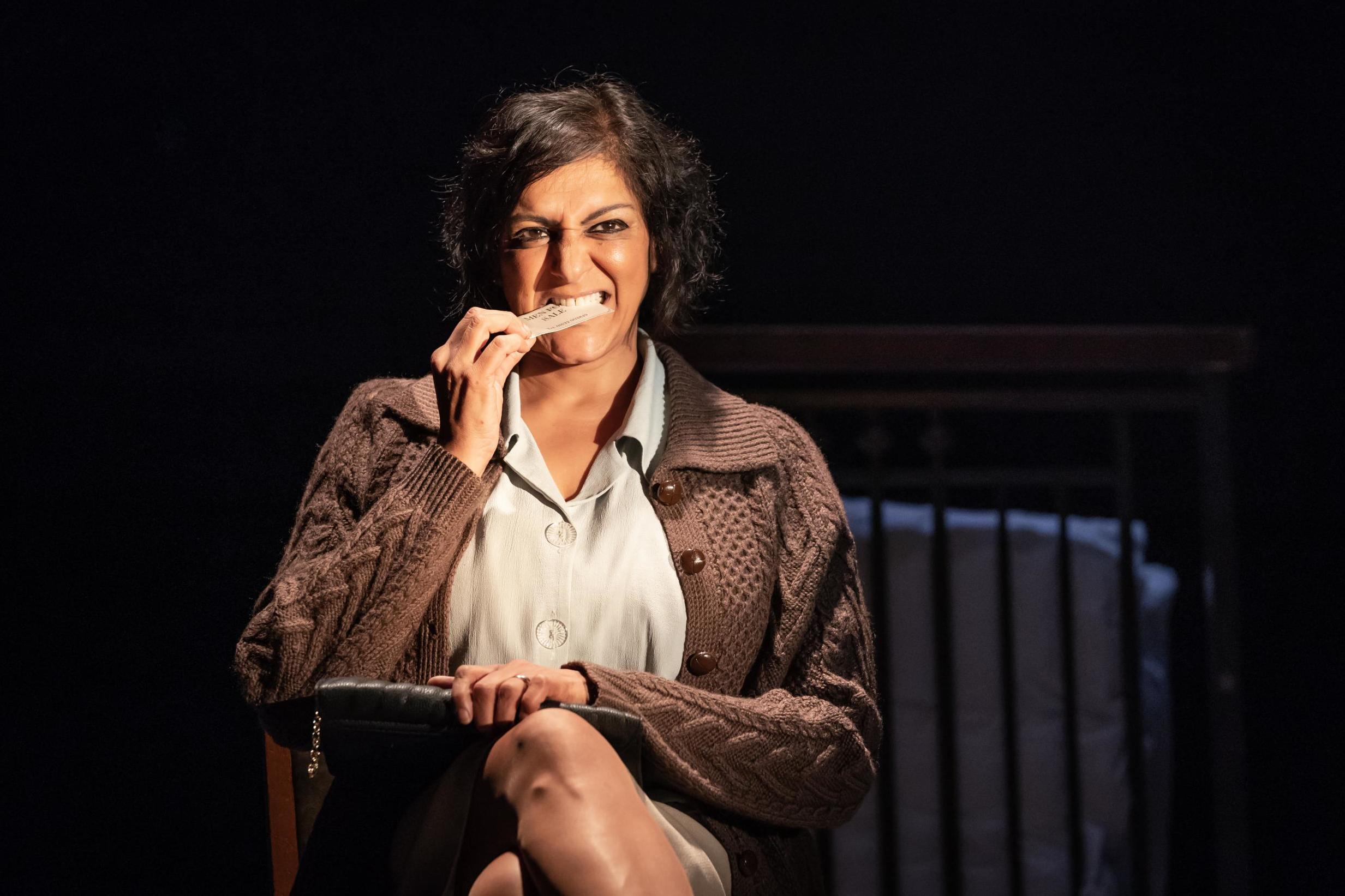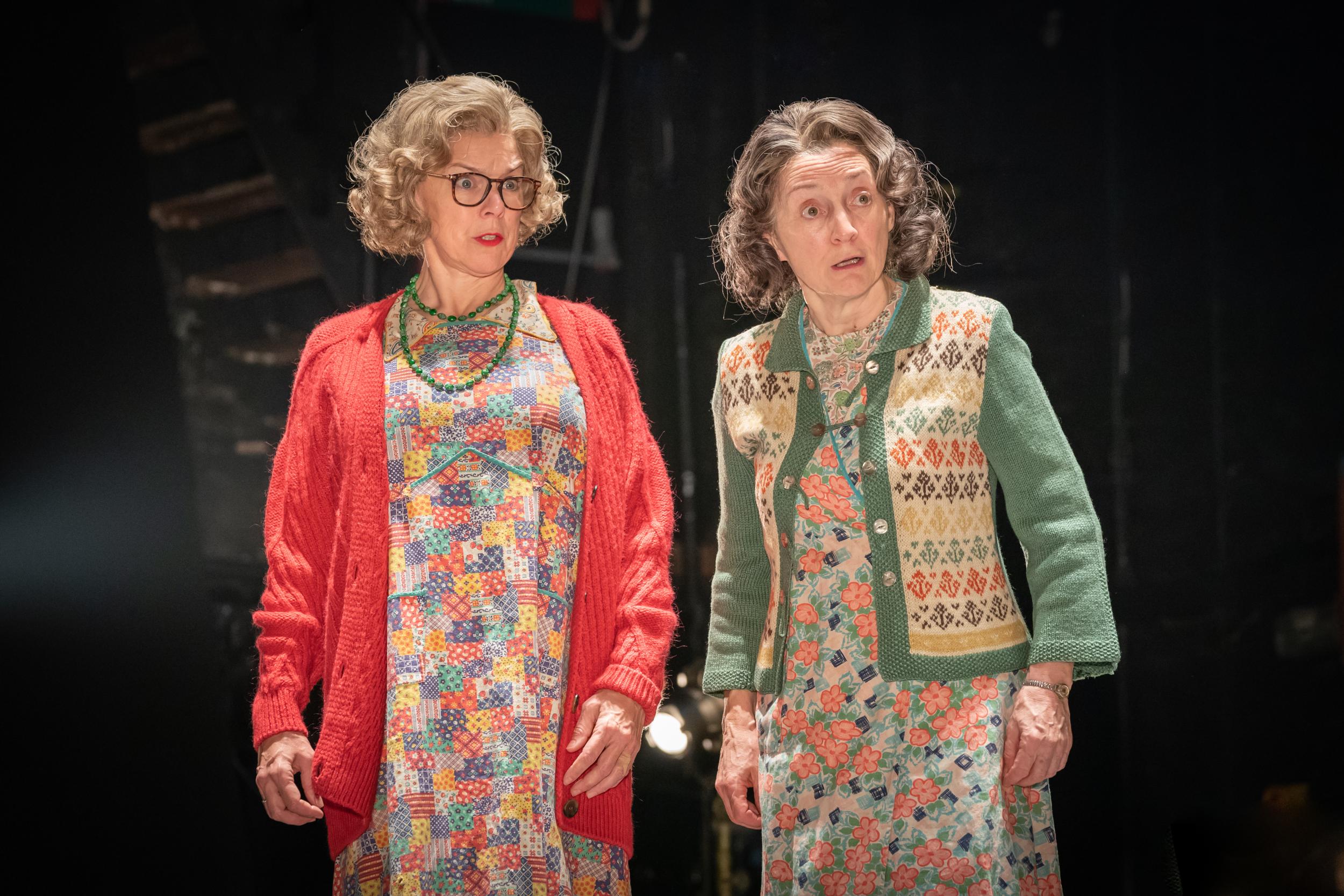Pinter Three and Four, Harold Pinter Theatre, London, review: 'Surprisingly joyous. I can't wait for the next batch of shows'
Jamie Lloyd's six-month season celebrating the complete corpus of the playwright’s short works continues

Jamie Lloyd's six-month season celebrating the complete corpus of Pinter's short plays got off to a scorching start last September with a clutch of pieces that show the playwright at his most overtly political, in particular his acute insights into torture. It continues now with plays that explore loneliness (the shared solitary confinement in certain marriages, say) and the way that the subjective, tactical nature of memory can undermine a sense of intimacy.
Lloyd has done a dazzling job of curating. The arrangement of the material is wonderfully suggestive – each mixed bill is more than the sum of its parts – but the connections that surface are not forced down your throat. There's nothing remotely precious or elitist in the proceedings. The zest and warm teamwork from the brilliantly cast and tightly bonded ensemble – performers that include Tamsin Greig, Lee Evans, Meera Syal and Janie Dee – give these productions their generous spirit of accessibility.
Pinter Three opens with Landscape, the hypnotic two-hander first staged in 1969. Greig and Keith Allen sit next to each other in a country house kitchen on Soutra Gilmour's huge rotating cube of a set with its bare bulb. Beth and Duff speak not in conversation but in overlapping monologues. Lloyd stresses the isolation. Greig delivers her lines into a microphone in a rapt, lilting Irish accent. It's an erotic reverie about a past encounter with a man on a beach (who may or may not have been Duff). She continues with these dreamy musings. Is it to punish her gruff, coarse, violently frustrated husband through this fit of passive aggression? Or it because she is so lost in her sensuous reverie that she is oblivious to him?
Greig and Allen get the inadvertently discrepant rhythms of the couple's monologues perfectly. An Irish Beth makes one long to hear the actress perform Beckett, for certainly these productions would indicate that there is no limit to her talents. Terrific in Landscape, she's even more astonishing in A Kind of Alaska (1982) where she takes on the role of Deborah who wakes up from a 29-year coma to discover that the world did not stand still while was was asleep. Sitting up against the pillows in a nightie, she brilliantly captures the incongruities between the dated register of a bossy teenager and her panicky, dawning awareness of what adult consciousness might entail. There's a terrible disjointed pathos – a rather childlike young teenager who increasingly does not wish to acknowledge that she in an adult body. Meera Syal gives a remarkably moving performance too as the sister who sacrificed her life for Deborah, who can't of course comprehend what degree of gratitude is due.
Lee Evans has returned to the stage to honour Pinter. Which is a welcome reminder that he is comic performer of genius. Here he is on hilarious form as an oddball loner, in Monologue (1973), who fires off chirpy and intimate remarks to his empty chair as if it were the beloved old friend and sexual rival with which he is obsessed. Is this past imagined – a grandiose excuse for failure? Evans stages a riotously funny insurrection with himself – tinged with hints of genuine tragedy.

The two plays in Pinter Four aren't on the same level of inspiration. Watching Lyndsey Turner's cumbersome production of Moonlight (1993), I was once again struck by how perilously close this death-bed drama comes to self-parody in its shifts of register and in its withholding of crucial information. By contrast, Night School, written for the radio in 1979, comes across with real comic-sinister freshness – it unfolds to a nagging live-drum accompaniment. The excellent Al Weaver plays a small-time forger who is released from prison only to find that his interfering aunts (Brid Brennan and Janie Dee, both delicious) have rented out his room to a female tenant. This young woman doubles as school teacher and a night-club hostess. His fascination with her double identity leads to a bleak conclusion. The jokes, though, are so good that that the atmosphere is upbeat.
The script is flecked with droll comedy. For example, the young ex-con seems to have lost the art of paying effective compliments while he was inside. With amusing clumsiness, he assures the teacher that her eyes “are.. Northern eyes. They're full of soot.” That's about as elegantly romantic as he can get.
Surprisingly joyous. I can't wait for the next batch of shows.
Until 8 December 0844 8711 7622 www.pinteratthepinter.com

Join our commenting forum
Join thought-provoking conversations, follow other Independent readers and see their replies
Comments
Bookmark popover
Removed from bookmarks